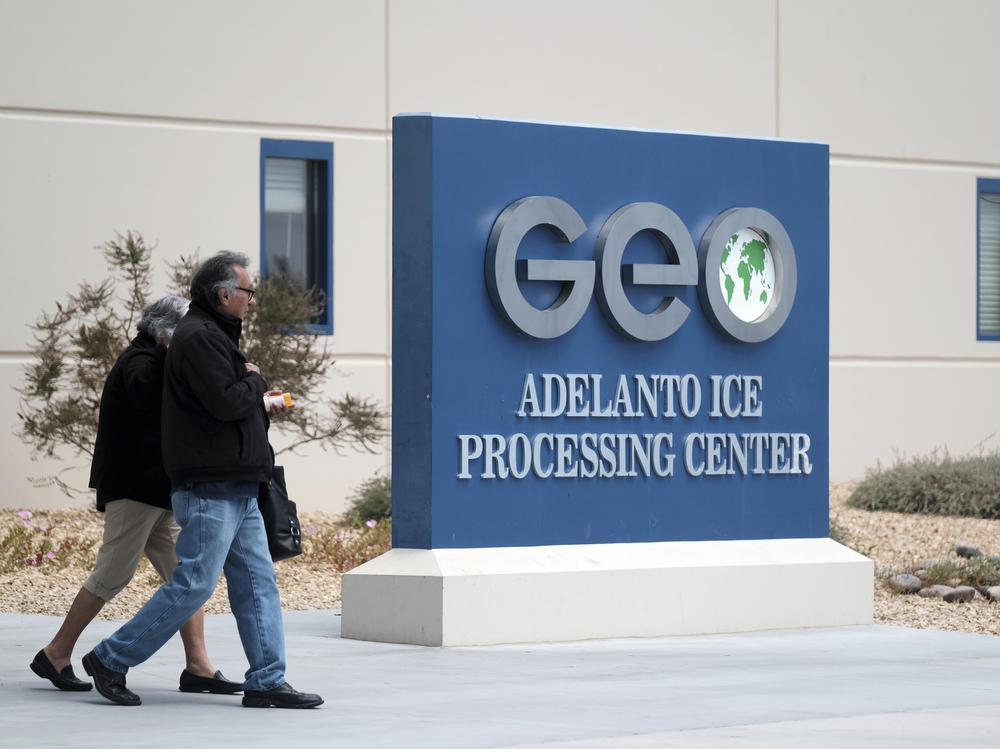Section Branding
Header Content
A federal appeals court blocks California's ban on private detention centers
Primary Content
A split federal appeals court in California ruled that a state law banning private detention facilities can't be enforced because it will likely intrude on the immigration authority held by the federal government.
The 2-1 decision from the U.S. Court of Appeals for the 9th Circuit also reverses an earlier trial court's dismissal of prior challenges to California's AB 32.
Gov. Gavin Newsom signed the ban into law in 2019. It sought to curtail California's cooperation with the federal government on immigration detention by slowly closing private detention facilities in the state by 2028.
A lawsuit challenging the rule was brought by the Trump administration and GEO Group Inc., a company that operates two private immigration detention centers. The Biden administration pursued this lawsuit after Donald Trump left office, despite campaign promises by Biden that he would close privately run detention centers.
Federal authority trumps California law, the judges say
In his decision, Judge Kenneth Lee writes that Congress granted the secretary of the Department of Homeland Security "broad discretion over immigrant detention, including the right to contract with private companies to operate detention facilities."
Lee writes, "AB 32 cannot stand because it conflicts with this federal power and discretion given to the Secretary in an area that remains in the exclusive realm of the federal government, and it bars the Secretary from doing what federal immigration law explicitly permits him or her to do."
Judge Bridget Bade and Lee, who were in the majority, were appointed by then-President Donald Trump. The dissenter, Judge Mary Murguia, is the sole member appointed by a Democratic president.
Murguia wrote in her dissent that AB 32 actually said "nothing about immigration, and it did not mention the federal government. Therefore, there was no justification for treating AB 32 as a regulation of immigration rather than one of health and safety."
Although the law was applied to immigration detention centers in the state, it didn't apply to only those locations, but rather a variety of federal and state facilities, she said.
California Attorney General Rob Bonta indicated that the state plans to appeal the court's decision.
"California is committed to protecting the health and safety of all people, irrespective of whether they are in custody or civil detention," Bonta said in a statement Tuesday. "When we passed AB 32, we sent a clear message that putting an end to for-profit detention centers is key to achieving that goal. Prisons and detention centers shouldn't be places of profit."
This ruling comes as the Biden administration is facing a major surge in immigration, particularly from Haitian migrants, to the U.S. border.
Refugee admissions to the U.S. fell to a record low during the 2021 budget year, despite Biden's pledge to reverse restrictions under the Trump administration, The Associated Press reported this week. A total of 11,445 refugees were allowed into the country during the budget year that ended Thursday — far below the nation's cap of 62,500 for the 2021 budget year that Biden set in May.
Advocates shared concerns Tuesday over allowing privately run immigration detention centers to stay open in the face of the ongoing crush at the border.
The Dignity Not Detention Coalition, which pushed for the passage of AB 32, said in a statement, "The long record of medical neglect and systemic abuses plaguing detention — and the anti-Blackness and racism deeply embedded in the system-- must not be swept under the rug. Today's ruling is a stark lesson about the threat unchecked corporate power poses to the democratic process."
Copyright 2021 NPR. To see more, visit https://www.npr.org.

